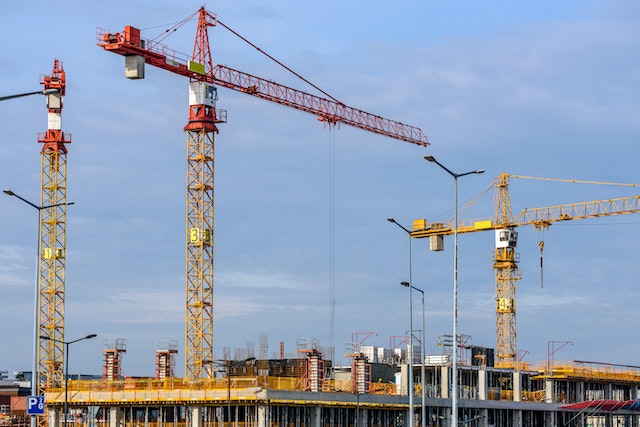How do construction companies go from small start-ups to large companies bidding on large commercial jobs? It is not an easy road and many companies fail. Why? Well, bad planning, under-capitalization, bad management, trying to grow too fast, and investing too much money in equipment too quickly are several reasons for failure. Avoiding failure is a full-time job for construction company owners.
Buying or Renting Equipment for Big Jobs?
How does a small construction company snag those bigger jobs that will help the company grow? A person can not buy a lot of large construction equipment right off the starting gate. Large equipment is very expensive. But to get those jobs, one has to prove they have the needed equipment to get the job done right and on time. One solution that construction company owners have is heavy construction equipment rental.
Many companies sell new and used construction equipment and they also have equipment rental divisions. They know that the construction company that rents equipment now, may buy it in the future. Equipment can be rented for the short term such as three weeks or for the longer term of up to three months. And, many companies have purchase options with their rental equipment.
A construction company owner should consider many factors in deciding which equipment to purchase outright, whether to buy it new or used and which equipment to rent a needed. The first two considerations are the available cash flow and size of the construction company and the type of construction projects the company wants to specialize in. Every construction company should decide on the type of jobs they want to do at the beginning. The type of construction jobs will drive the need for certain pieces of equipment. Since different types of construction call for different equipment, it is good to limit the type of jobs to ones that require much the same equipment.
Additional Considerations
Considerations in deciding to rent or purchase a piece of equipment include:
- How long will the equipment be needed? The shorter the time the equipment is needed, the better option renting might be. Will this equipment be needed for other jobs coming in the near future? Is there money available to purchase it?
- Does the equipment need a specially trained operator to safely and effectively run it? Does the company employ a person with the right training and certifications? How many times will this equipment be needed in the near future? Outsourcing this job to a subcontractor might be a better option and is like renting. If there are staff with training, then renting the equipment for one-time use is a good option.
- How much will this equipment be utilized? One rule of thumb is that if the equipment will be used 60% or more of the time, buy it. If it will be used less than 60% of the time, consider renting it. In some cases, it is a good idea to rent a piece of equipment until it is evident how much it will be utilized.
- Consider the ROI or return on investment for each piece of equipment including fuel costs, storage costs, operator salaries, maintenance and repair costs, etc. How much revenue will this equipment bring the company?
- Consider the tax implications of purchasing vs renting construction equipment.
- For equipment that will only be needed for one job in the near future, consider outsourcing rather than either renting or purchasing. How much will the subcontractor charge vs renting the equipment and an operator or purchasing the equipment.?
Experts at good equipment rental companies can be very helpful in making these important decisions. Deciding whether to purchase or rent construction equipment can have a big effect on a company’s bottom line. Large construction equipment is expensive to buy, expensive to maintain, and expensive to safely store. A small company might rent equipment until it gets well-established and then, purchase equipment they use the most often as funds become available.





